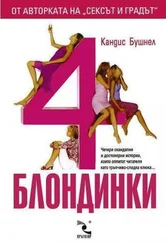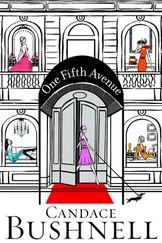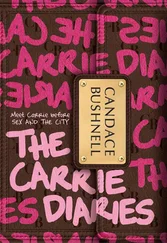Winnie and James never tell their friends about these arguments. On the weekends, when they're hiking or gardening or antiquing with their friends (everybody piles into somebody's car and they go to a nursery and buy plants or go "poking around" in western Connecticut), they present a united front: They respect and admire each other and each other's work and they are best friends. Even when they had that horrendous discussion with their friends one Saturday evening (they all agreed the next morning that maybe a little too much red wine had been consumed four bottles between the eight of them—and vowed never to let it happen again) about what social class they were from and what social class they now belonged to, they all remained good friends.
And they might not have. While Winnie's class background was established beyond a doubt ("textbook, practically," James had said)—she came from a well-to-do Irish family and grew up in a ten-room colonial house on twenty acres in Pennsylvania, where her father was a judge—James's was not. His father owned three dry-cleaning stores on Long Island. Dry cleaning was definitely blue-collar, but no one could agree on whether or not the fact that he "owned three stores" elevated him to white-collar.
James knows what is wrong with his life. With his writing. He's been losing his drive at about the same rate that he's been losing his hard-on.
On the morning of Winnie's birthday, James Dieke wakes up and is afraid. He's going to do something to Winnie. Something she won't like. And he's excited.
At noon, James goes to Bloomingdale's to meet Winnie's sister. As he walks toward the shoe department, he realizes his worst fear has taken place Evie is not there.
He stands in the middle of the shoe department, not knowing what to do. Everybody is watching him.
He is on display (like a shoe). He picks up a shoe and puts it down. A salesman comes over. What kind of a man is a salesman in a women's shoe department? The man asks if he can help him. James says, "No, I'm waiting for someone. My wife. It's her birthday." Why has he lied to the salesman? Why has he told him anything? What if the man (a stranger) finds out that Evie is not his wife? He will think Evie is his mistress. What if Evie were his mistress? What if he were secretly fucking his wife's sister? (It could happen. Evie fucks everyone, has a new boyfriend every two weeks, sleeps with married men, sleeps with men she meets in classes at the Learning Annex, at AA, at the snack bar in the Met.) When Winnie is feeling charitable, she says that they shouldn't judge Evie, that Evie can't help herself because she's a sex addict.
James walks around the shoe department. He thinks about leaving, about teaching Evie a lesson. (He can think of lots of lessons he'd like to teach Evie.) But she might show up any minute. He sits down.
He tries to look comfortable. (He's getting angry.) When he was four, he once got separated from his mother while she was shopping at Bloomingdale's. He had wandered into the lingerie department. It was full of pointy bras and girdles hanging from racks above his head. It was like a forest, and he had circled around and around, thinking he was going to see his mother around the next clump of Lycra (was it Lycra they used then, or something else?). He didn't. He sat down. He cried. (He wanted to scream.) He was scared, more scared than he'd ever been in his life, before or since. And angry. He thought his mother had abandoned him. On purpose. He didn't know what to do. (He was just a little boy.) "Hello, Jimmy." Evie comes up behind him and puts her hands over his eyes. He doesn't move. (He must not reward her inappropriate behavior. But he feels silly sitting in the shoe department at Bloom ingdale's with a sexy woman's hands over his eyes.) "Dammit, Evie," he says. "I don't have much time." (Reminding her of whom she is dealing with.) "Deadline?" Evie says (smartly, he thinks).
"I'm always on deadline," he says. "Ifs about responsibility. Something you're not familiar with.”
"Gee, thanks," Evie says. She is a little bit crushed, he can tell. But he has to crush her. (He can't let her flirt with him. Evie must learn about boundaries. Then maybe she'll be able to find a man, keep him, and get married. Become a healthy member of society.) "Let’s make this quick, then," Evie says. She turns and smiles. "I've got a deadline too. I wanted it to be a surprise, a wonderful surprise for you and Winnie. I got that assignment from The New York Times!
Oh Jimmy," she says. "You're going to have to help me. I'm going to be calling you every day, asking for advice. You don't mind, do you?”
"How'd you do that?" James asks. He wants to be happy for her, but he can't. Evie doesn't deserve to get an assignment from The New York Times. She's never written a piece before in her life. He wants to scream (as he so often wants to scream these days), What is the world coming to? "Well, good for you," he says.
Evie picks out some shoes. All high-heeled sandals. Fuck-me shoes, Winnie would call them. He watches as Evie's foot slides into the sandal. She has good legs. Great legs, actually. She models the shoes, turning this way and that. "Jimmy," she says, "I really want you to be happy for me. I'm trying. Trying to make something out of my life. Why can't you and Winnie be supportive? For a change.”
"We are," James says.
Evie puts her hand on his shoulder for balance as she leans down to take off the shoe. He doesn't brush her hand away. She looks at him suggestively, and for once, he looks at her suggestively back. If she can break the rules, he thinks, maybe he can too.
He spends four hours shoe-shopping with Evie.
They go to Barneys. Bergdorfs. Saks. They go to lunch (Gino's). Evie drinks wine and he does too (he objects at first, ordering bottled mineral water, but then, after Evie has nearly consumed her first glass, he quietly orders a glass for himself, over his shoulder, as if she might not notice). Finally, they decide on the perfect pair of shoes for Winnie. Manolo Blahniks. Sandals. The shoes cost five hundred dollars.
He pays gleefully. He and Evie part on the street corner. "I'm going to call you tomorrow," she says. "So we can discuss my article.”
"It's a piece, Evie, a piece. Not an article," he says. He walks away. The little bit of alcohol (and it really was only a little bit, one glass only) is wearing off and he feels slightly queasy, like a thing that's been left out in the elements for too long. What has he done (has he done anything)? He hails a cab. For the first time in his marriage, he wishes he didn't have to go home. (But he can't think of where he'd like to go instead.)
WINNIE LOOKS AROUND
Winnie still considers it her job to be the goodlooking one in the relationship. Being good-looking is part of mastering the world. It is part of being perfect. (It is not about being beautiful. Beautiful women are self-indulgent. Beautiful women are stupid because they don't have to try.) She is five-seven and weighs 125 pounds. If she let herself go, let her body reach its natural weight, she'd probably weigh between 130 and 135 pounds. But she won't let herself go. (Ifs about control.) Winnie thinks about weight a lot (probably too much. She should be thinking about more important things, like ideas. But who can help it?). She is very, very against women's magazines using skinny young models. It's one of her pet peeves. (She wrote a two part series about the topic, called "Skin and Bones is Not Sexy," and afterward, she went on two newsmagazine programs on TV, where she destroyed her opponent, a fashion editor from a women's magazine.) But she would never want to be "fat" herself.
(She feels bad when she sees friends who have gained weight. She feels superior. But only because she knows they are unhappy.) She keeps her weight under control by running around the reservoir in Central Park every weekday morning at seven a.m. (she knows it could be dangerous, but it would be more dangerous to gain weight). She weighs herself afterward. Examines her naked body in the mirror.
Читать дальше











![Кэндес Бушнелл - Есть ли еще секс в большом городе? [litres]](/books/398473/kendes-bushnell-est-li-eche-seks-v-bolshom-gorode-thumb.webp)
